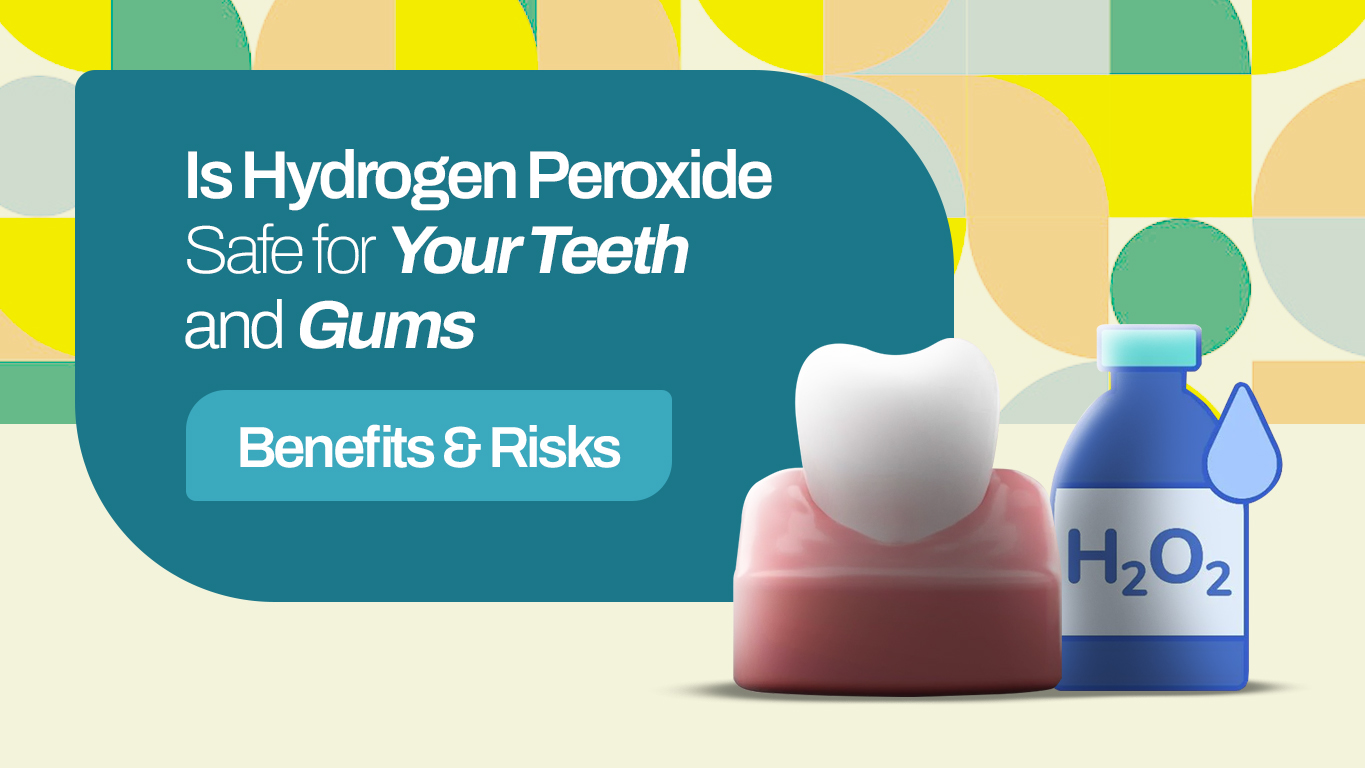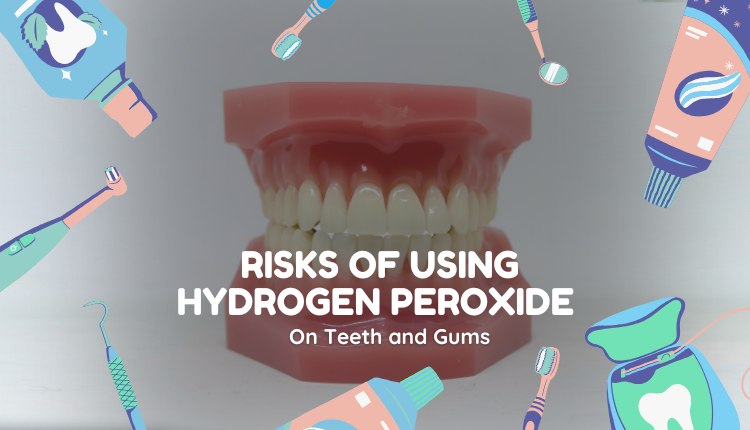Is Hydrogen Peroxide Safe for Your Teeth and Gums? Benefits & Risks

Hydrogen peroxide is a common household item known for its antiseptic and bleaching properties. It’s often used to clean wounds, whiten surfaces, and even as a mouth rinse. But when it comes to oral health, many people wonder: Is hydrogen peroxide bad for your teeth and gums? This article will explore the benefits and risks of using hydrogen peroxide for oral care.
What Is Hydrogen Peroxide?
Hydrogen peroxide (H₂O₂) is a chemical compound that acts as a mild antiseptic and oxidizing agent. It’s commonly available in low concentrations (3% to 10%) for household use. In dentistry, it’s used in teeth whitening products, mouthwashes, and even some toothpaste formulations. Its ability to kill bacteria and break down stains makes it a popular choice for oral care. But is it truly safe for your teeth and gums?
Benefits of Hydrogen Peroxide for Teeth and Gums
When used correctly, hydrogen peroxide can offer several benefits for your oral health:
-
Teeth Whitening
Hydrogen peroxide is a key ingredient in many over-the-counter and professional teeth whitening products. It works by breaking down stains on the enamel, resulting in a brighter smile.
-
Antibacterial Properties
Hydrogen peroxide can kill harmful bacteria in the mouth, reducing the risk of gum disease and bad breath. This makes it a popular choice for those looking to maintain oral hygiene.
-
Wound Healing
If you have minor mouth sores or cuts, rinsing with a diluted hydrogen peroxide solution can help disinfect the area and promote healing.
-
Plaque and Tartar Control
Some studies suggest that hydrogen peroxide can help reduce plaque buildup when used as part of a regular oral care routine.
Risks of Using Hydrogen Peroxide on Teeth and Gums

Risks of Using Hydrogen Peroxide
on Teeth and Gums
While hydrogen peroxide has its benefits, it’s not without risks. Overuse or improper use can lead to several dental issues. Here’s what you need to know:
-
Tooth Sensitivity
One of the most common side effects of using hydrogen peroxide is increased tooth sensitivity. This happens because the compound can weaken the enamel over time, exposing the sensitive dentin underneath.
-
Gum Irritation
Using high concentrations of hydrogen peroxide or using it too frequently can irritate the gums, causing redness, swelling, or even chemical burns.
-
Enamel Erosion
While hydrogen peroxide is effective at removing stains, it can also erode the enamel if used excessively. This can lead to tooth decay and other dental problems in that case need to do tooth resorption as well.
-
Altered Oral Microbiome
Hydrogen peroxide doesn’t discriminate between harmful and beneficial bacteria. Overuse can disrupt the natural balance of bacteria in your mouth, potentially leading to oral health issues.
Common Questions About Hydrogen Peroxide and Oral Health
-
Is Peroxide Bad for Your Teeth?
Hydrogen peroxide is not inherently bad for your teeth when used in moderation and at the right concentration. However, overuse or using high concentrations can damage the enamel and irritate the gums. Always follow the instructions on the product label or consult your dentist before using hydrogen peroxide for oral care.
-
Can You Brush Your Teeth with Peroxide?
Brushing teeth with peroxide is generally safe if done occasionally and with a diluted solution. Mix equal parts of three percent hydrogen peroxide and water, dip your toothbrush in the solution, and brush gently. Avoid swallowing the mixture, and rinse your mouth thoroughly afterward.
-
Can You Gargle with Hydrogen Peroxide?
Yes, you can gargle with hydrogen peroxide, but it should be diluted. Mix one part 3% hydrogen peroxide with two parts water, swish it around your mouth for 30 seconds, and spit it out. This can help kill bacteria and whiten teeth, but it should not be done more than once or twice a week.
-
Is Hydrogen Peroxide Good for Teeth?
Hydrogen peroxide can be good for teeth gums when used correctly. It can whiten teeth, kill bacteria, and promote oral health. However, it’s important to use it sparingly and in the right concentration to avoid damaging your enamel or gums.
When to Seek Professional Help
If you experience any adverse effects from using hydrogen peroxide, such as severe tooth sensitivity, gum irritation, or enamel erosion, it’s important to seek professional help immediately. In case of a dental emergency, such as chemical burns or severe pain, contact Springvale Dentists at Springvale Dental Clinic for prompt and expert care.
Conclusion
Hydrogen peroxide can be a useful tool for maintaining oral health when used correctly. It offers benefits like teeth whitening, bacteria reduction, and wound healing, but it also comes with risks such as enamel erosion and gum irritation. If you’re unsure about using hydrogen peroxide or need professional dental care, don’t hesitate to reach out to Springvale Dentists at Springvale Dental Clinic. Your smile deserves the best care, and we’re here to provide it.
For more information or to schedule an appointment, visit Springvale Dental Clinic today!
